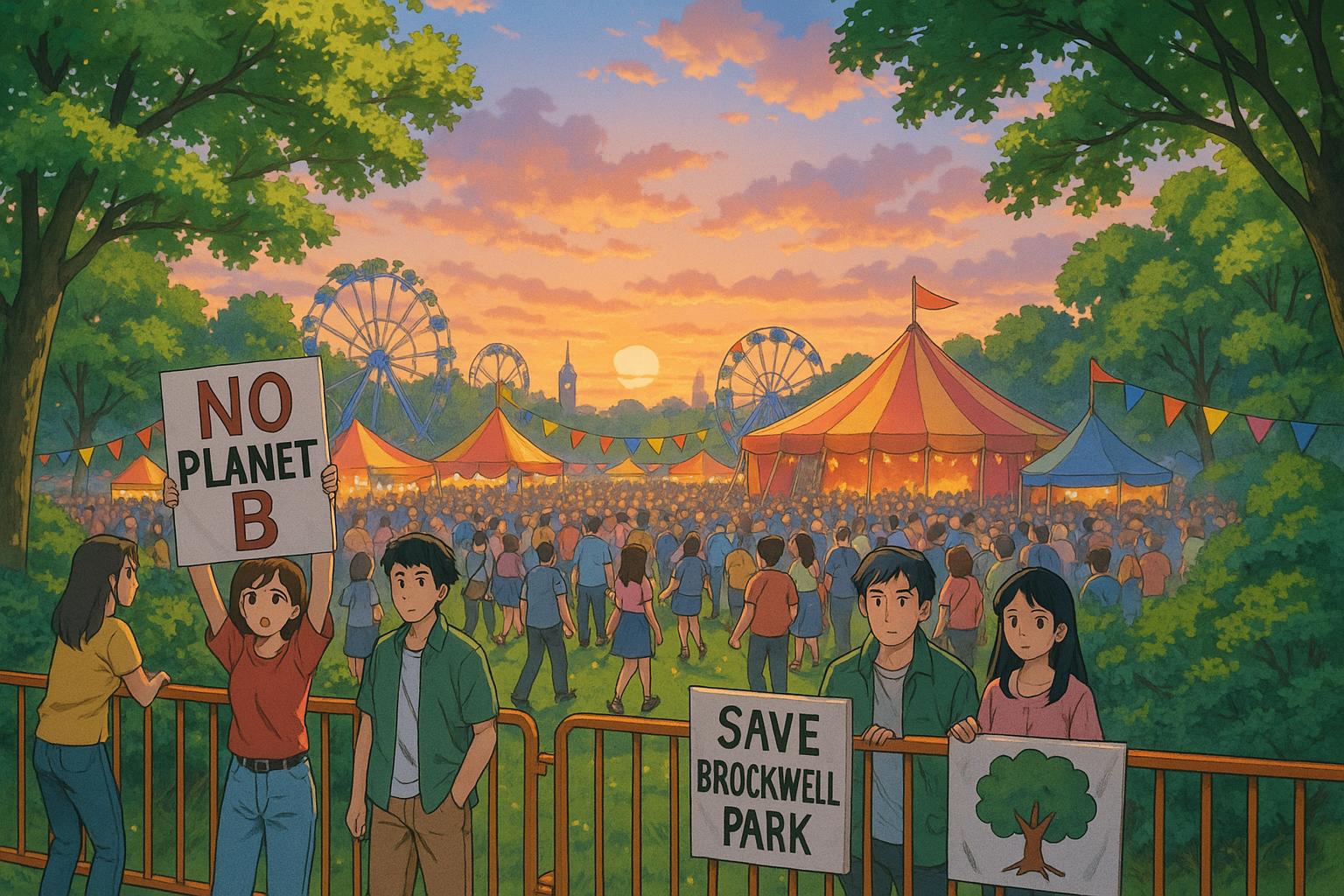In a contentious battle over the use of Brockwell Park in Brixton, London, events such as the 'Brockwell Live' festivals are set to proceed despite a recent High Court ruling that challenged their legality. The campaign group Protect Brockwell Park, led by Rebecca Shaman, has made significant waves in the community, raising alarms about the impact of multiple festivals scheduled throughout the summer. Their legal challenge resulted in a pivotal ruling which found that Lambeth Council had exceeded the permitted duration for temporary events. Although the court sided with the campaigners on legal grounds, the council has now issued a certificate of lawfulness allowing the festivities to continue.
The festivals, including Wide Awake, Mighty Hoopla, and Field Day, which kicked off recently, have drawn both fervent supporters and vocal opponents. Cllr Donatus Anyanwu, Lambeth’s Cabinet Member for Stronger Communities, addressed the delicate balance the council strives to maintain. He noted the economic benefits that such cultural events bring to the area, arguing that the revenue generated is vital for ongoing investments in local community projects. However, the pressure to deliver these events has raised questions about transparency and sustainability.
Critics, including Jen Hawkins from Protect Brockwell Park, articulate deep concerns about the detrimental effects of the festivals on the park’s natural environment and the loss of public access. "Loss of public access, damage to nature, and the council's lack of transparency and consultation" are the principal grievances she identifies. Many locals depend on this green space, viewing it as their connection to nature amidst the urban sprawl of London. Hawkins underscores that the fenced-off sections of the park hinder the mental and physical well-being of those who lack private gardens.
Actress Sir Mark Rylance has also joined the fray, specifically regarding environmental issues associated with the festivals. He has accused the council of treating the park as a "prison camp" rather than a communal space. Rylance’s involvement highlights a broader concern: the potential long-term damage to one of London’s cherished public parks. In contrast, some locals voice support for the events, asserting that they inject vitality into the community and contribute to the park's upkeep.
The implications of these events extend beyond recreational use; they reflect a growing tension surrounding the commercialization of public spaces in London. While supporters argue that festivals enrich cultural life and provide crucial funding, opponents fear that unchecked development will erode the very essence of public parks. The ongoing legal disputes and community debates illustrate a microcosm of a larger national conversation about the importance of sustainability, community engagement, and the rights of residents to enjoy their public spaces without restriction.
As Brockwell Park braces for a summer filled with vibrant yet divisive festivals, the challenge remains for Lambeth Council to navigate these competing interests while safeguarding the park’s future for all its users. The community continues to advocate for a balanced approach, one that acknowledges both the need for cultural events and the imperative to preserve the park’s integrity as a natural refuge in an increasingly urbanised landscape.
Reference Map:
Source: Noah Wire Services
